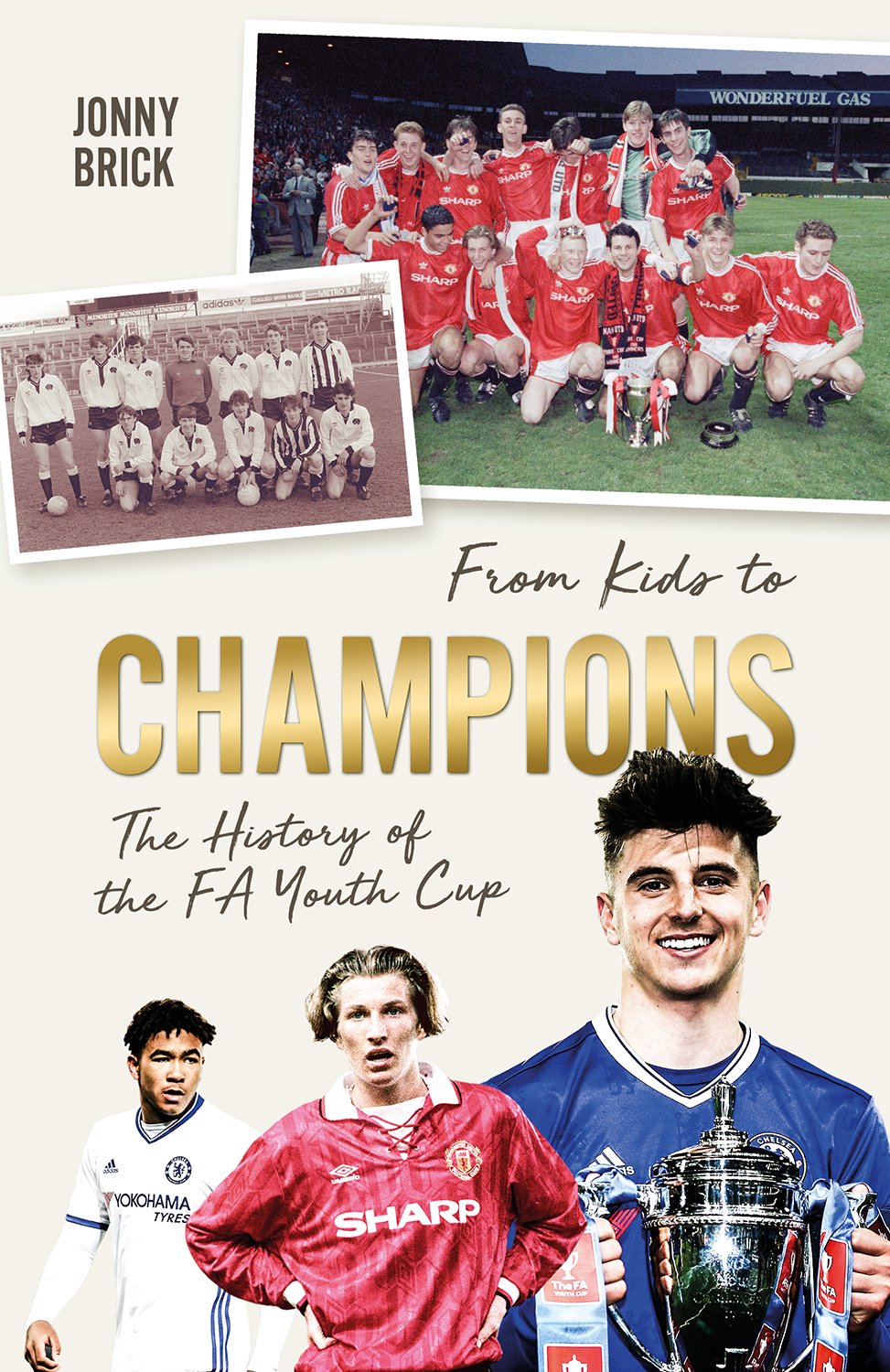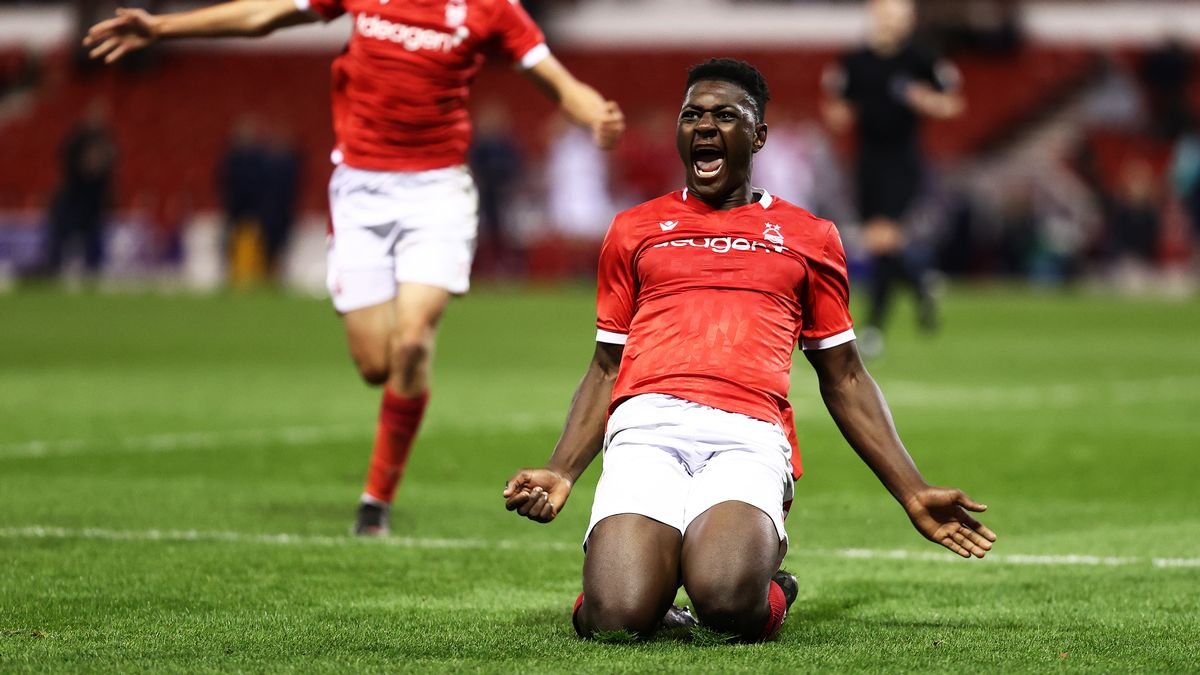Tonight (May 11 2022), the youth sides of two European Cup winners meet in the 70th final of the country’s elite competition for scholars and young pros.
In 1952, the English FA launched the first competition for academy footballers. As with Real Madrid and the European Cup, Manchester United made the FA Youth Cup their own, winning the first five before some of those medallists lost their lives in the Munich Air Disaster.
In the next 40 years, only three sides ever retained the trophy: Chelsea in the 1960s, Crystal Palace in the 1970s and Arsenal as the centuries turned. It is Chelsea who have invested in their academy – however shadily they gained that money – and reaped the rewards in the last decade, finally seeing young talent advance to the first team.
Already, some of their 2021/22 scholars have played for the Blues, including Lewis Hall and Harvey Vale, and Chelsea deserve to shout about their consecutive run of over 200 games with a homegrown player in the matchday squad in recent seasons. Alright, so Manchester United’s run stretches to over 4,100, but it’s not a competition.
The Youth Cup, on the other hand, will likely be won by one of those teams, who both advanced to the semi-final. Manchester United had Wolverhampton Wanderers in their way, which was apt given that the first two Youth Cup finals back in the 1950s were between those sides. United trounced Wolves 9-3 over two legs in 1953, then narrowly retained the trophy with a 1-0 second-leg victory after the first game finished 4-4. Both clubs won the First Division that decade too, back when the FA had imposed a ban on signings from outside the UK and Ireland.
In the decades since that first final, United have become serial winners and Wolves have clambered back up to the top tier after a decade yo-yoing up and down with a series of managers who couldn’t stop the rot. United are now owned by Americans and Wolves belong to the Fosun holding company who employ various managers from Portugal.
In the end, United ran out 3-0 winners at Old Trafford, a week before the senior team tumbled out of the UEFA Champions League in the round of 16. Anthony Elanga and Scott McTominay both started that game to prove that there is still a credible passage from youth ranks to the first-team dressing room, and I am sure that plenty of the kids will get some senior involvement in the coming seasons.
The first goal came from the number nine Charlie McNeil who received a ball over the top and touched it around the Wolves keeper to his right. He still had a lot to do, as they say, but you don’t get a scholarship at United without being calm under pressure and the ball rolled into the net. He could have had a second goal early in the second half but blazed over.
The discovery of the tournament has been Alejandro Garnacho (below), an unused substitute in several recent first-team games including the 4-0 losses at both Liverpool and Brighton. After his team won possession when Wolves had committed too many men forward. Garnacho (wearing number 11) curled the ball into the corner of the net after beating his marker for United’s second goal in the semi-final. McNeil got his second when he was in the right place at the right time after Garnacho’s shot had been saved. For the first time since a team including Ravel Morrison, Jesse Lingard and Paul Pogba won the Youth Cup in 2011, United’s kids were in the final of the tournament.
United would have home advantage once more and would play the winners of the other semi-final, which gained an extra frisson because it involved Chelsea.
After beating Blackpool in the last eight, the Blues took on Nottingham Forest, who overcame Blackburn Rovers in their quarter-final, on April 4 at the City Ground. Forest have never even reached the Youth Cup final, which seems odd considering they won two European Cups in their glory years. This century has seen boardroom turmoil and not much stability, but the guiding hand of Steve Cooper helped the first team go unbeaten in February 2022 and rise to the play-off positions as Easter approached, and they had three games in hand on two of the teams above them.
Chelsea were going for an eighth Youth Cups since 2011. Their procession of young homegrown talent (Tomori, Abraham, Nathaniel Chalobah) had been sold on as assets after their passage to the first-team had become blocked by imports. Ed Brand was overseeing the latest batch of golden geese.
At Forest, down in the under-18s, the esteemed Warren Joyce has organised a strong team. You might recognise that name if you followed football in the north of England in the 1980s and 1990s. Joyce played for Bolton, Preston, Burnley and, notably, Hull, helping the East Yorkshire side stay in the Football League in 1999 by guiding them in a Great Escape.
Joyce then worked at Manchester United for eight years in the Reserves, first alongside Ole Gunnar Solskjaer then on his own. His United connections got him a job coaching the under-23s at Salford City (which is owned by Giggs, Butt and the rest) before Forest stalwart Gary Brazil offered Joyce, with whom he did his coaching badges, the under-18s job. Brazil described Joyce as ‘an outstanding developer of elite football’ who ‘creates high expectations’ of players, especially important given that Forest had secured Category One status in their Academy, matching those of United and Chelsea.
The scholars at Forest include Jack Nadin and Detlef Esapa Osong (below), who scored the goals in the quarter-final. The latter turned pro in January 2022 after being spotted by Forest playing grassroots football. Team captain Jamie McDonnell joined the club in 2020 from Glentoran in Northern Ireland.
He is part of the under-23s side coached by former Forest winger Andy Reid, who himself came through the club around the turn of the century and re-joined the team in 2011. McDonnell was born in February 2004, making him younger than ‘18 years of age at midnight on 31 August of the current season’, as per the rules of the competition. All three of the above players started the game at the City Ground against a Chelsea team full of familiar names but not Harvey Vale.
As per his role in the tournament so far, current Eton student Tudor Mendel-Idowu would be called upon as supersub if needed, watching team-mates including midfielder Lewis Hall, wing-back Silko Thomas, wide forward Malik Mothersille and centre-back Alfie Gilchrist. In a season where they were finding it tough to keep clean sheets, ensuring Forest didn’t score would make the job a lot easier.
The excellent @ChelseaYouth account communicated updates throughout the game, which was streamed on the Forest TV Youtube channel. There was also a feed broadcasting to Canada, Malaysia, South Africa and, via ESPN+, the United States. How strange for the young Forest players to have their names beamed around the world; Chelsea’s players would have been prepared for this from a young age.
Not a great deal happened in either penalty area in the first half-hour and there was a seven-minute stoppage before half-time when Forest playmaker Nadin turned his ankle innocuously and had to be brought off the field on a stretcher. The Youtube feed showed that the lower level of the cantilevered stand was almost at capacity, testament to the local interest in Forest’s Youth Cup run.
Five minutes into the second half, from nothing, Esapa Osong hit the bar with a wonderful shot. Chelsea then woke up and attacked solidly for ten minutes, with Warren Joyce bellowing advice on marking up from the corner. From it, Gilchrist’s shot was saved at the near post; with three Chelsea defenders rumoured to be leaving the club at the end of the season, perhaps some young Academy products would reach the first team sooner than they might think.
‘Get on it!! Get over!!’ came Joyce’s shouts in his Lancastrian accent. It was all in vain as Charlie Webster, whose dad I had sat next to at the fourth-round game against Watford, took the latest corner, got the ball back, crept into the penalty area and shot. It was deflected into the far corner and Chelsea were ahead on the hour.
Chelsea’s lead should have doubled after Mothersille’s shot was smothered by Aaron Bott, and it took two defenders to deny the same striker moments later. He was withdrawn, perhaps because he was tired or because manager Ed Brand really needed his team to score second goal with 15 minutes left. Forest withdrew a defender who suffered cramp in that block on Mothersille and tried to get themselves back into the semi-final with the odd shout from a rather quiet crowd who were shivering in the cold.
But Chelsea cannot keep a clean sheet this season. It felt inevitable when, five minutes from the end, Esapa Osong steered the ball into the path of Dale Taylor, who fired confidently into the Chelsea net for an equaliser. It got better for the home side. After some miscued headers at the back by Chelsea, Taylor prodded the ball forward to onrushing left-back Kyle McAdam, who will have surely played for England under-16 with some of his opponents.
McAdam hit the byline and pulled the ball back to substitute Jack Perkins. I was a second ahead of the play as I noticed Esapa Osong waiting on the penalty spot for the ball to be tapped back to him. One deflected shot was all he needed and Forest led: Jubilation, elation and a transformation. On came the Etonian supersub Tudor Mendel-Idowu, with 240 long seconds of stoppage time to play. Mothersille’s misses were murder.
Had Forest planned for this eventuality? They started wasting those seconds, 10 or 20 at a time, when they had throw-ins. Get it in the corner, Warren Joyce must have been thinking. But no.
Esapa Osong got a loose ball after a lucky ricochet, beat some tired Chelsea players and fell over a trailing leg. Penalty to Forest. Esapa Osong took the ball under his arm, plonked it on the spot and showed immense coolness to blast it into the top of the net.
History books be damned: Chelsea would not be going for Youth Cup number ten. Nottingham Forest would go for their first, but the famous Manchester United were favourites to win number 11. How ironic that their old employer, who helped to bring through the 2011 Youth Cup winners as the Reserves boss, was going to be in the opposition dugout.
Football, eh?
The FA Youth Cup final takes place at Old Trafford on May 11. From Kids to Champions: The History of the FA Youth Cup is out on May 16, priced at £16.99 on Pitch Publishing.


